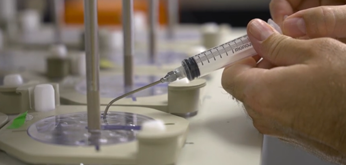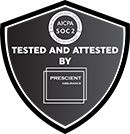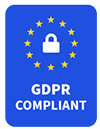23rd March 2022
%20(1).jpg?width=800&name=Health%20safety%20personal%20development%20(3)%20(1).jpg)
While finishing your day writing out the words "Dear diary... " might seem somewhat juvenile, there's a lot of merit in engaging in some meaningful self-reflection.
If we focus on self-improvement via self-reflection, even by a small incremental margin each day, we'll notice vast improvements in our life experience. Learning to understand ourselves has a flow-on effect on others, and is a critical process to self-fulfillment.
By aiming to improve how we think or behave by a small amount each day, it's possible to dramatically increase our motivation, energy and enthusiasm - and, not to mention, a sense of happiness and wellbeing. Self-reflection is an often overlooked starting point to becoming healthier and happier - and by virtue, safer in the workplace.
From an organisational perspective, personal development holds the key to a motivated, energised workforce that engages with a functioning safety culture.
Beyond the classic self-improvement tasks - enough sleep, frequent exercise, healthy food - a more underestimated area of personal development is the art of self-reflection. Self-reflection is a useful skill that requires taking a short window of time out of your day to sit down and reflect, asking yourself valuable questions to know yourself better.

The first area of self-reflection examines who you are and what you spend your time doing.
We spend a considerable amount of our lives at work, which can either be a good or bad thing, depending on multiple factors.
Begin by asking yourself:
- - Who am I?
- - What do I like to do?
- - Where do I want to work/am I happy in my role?
Ask personal questions and unpack the motivations that underpin your hopes and dreams. If you’re in a role that is severely detrimental to your own wellbeing, you're far less likely to be motivated to engage with safety and workplace systems (we don’t blame you!).
Finding work that is meaningful to you is essential for a sense of purpose. An inspired and enthused employee is far more likely to ‘buy in’ to company culture and contribute and commit to improving safety.
Happy workers are healthy workers. It's straightforward: workers who aren’t happy in their job will be far less likely to engage in healthy work behaviours or safety protocol.
Ultimately, knowing your own motivation and life goals can help you clarify what you find important and valuable. You can either use your reflection to help guide you to a new role, or have a deeper understanding of what motivates you in your current role, and therefore what to prioritise in a time of crisis.
It's useful to take an objective perspective of yourself, and have a think about which tasks come easily to you, and where you tend to struggle.
Questions to answer:
- - What tasks or skills am I good at?
- - Where do I struggle to remain motivated?
- - Are there any areas of weakness in my working life?
There is no shame in admitting weakness. Rather, it’s a useful exercise that can expand your own self-awareness. Someone who knows their own strengths and limitations can form valuable opinions about which tasks are achievable and realistic for them. Self-awareness leads to effective delegation.
A manager or leader who knows where they thrive can capitalise on this knowledge. A team who knows their own strengths and weaknesses become stronger - and are less likely to experience serious incidents as a result of inability or uncertainty.
Finally, engage in self-reflection to consider how you function under pressure.
Questions to answer:
- What stresses you out at work - deadlines, endless meetings, or task magnitude?
- How do you react to stress? Do you delegate and prioritise? Or do you shut down and internalise your struggle?
- What kind of worker are you? Do you work best in short bursts, or do you prefer to chip away at tasks over time?
Knowing how you react to stress is critical. Understanding your response to sudden problems helps you mitigate the outcomes of negative situations. You can plan your course of action, allowing some wiggle-room for the unexpected. Self-reflection takes away the surprise factor.
If, for example, you know you need 10 minutes to decompress before decision-making, factor that into your meeting schedules. If you need to hear the calming voice of a designated colleague who can reassure you, keep them in close contact and let them know how they could help.
Negative stress reactions can have disastrous results. SOmething as seemingly innocuous as being distracted can lead to devastating consequences. Consider the tragic situation where a parent leaves their child in a hot car, gets distracted, and in doing so, inadvertently causes their death. Distraction becomes a critical risk factor. Knowing and understanding how exactly we behave under pressure (are we distracted? Frenzied? Calm?) helps to mitigate and reduce the likelihood of similarly disastrous situations.
Understanding how you work best allows you to plan your day, according to your preferences to help keep you motivated, energised and productive. For example, if you learn that working in short bursts and taking quick 5-minute breaks in between tasks keeps you engaged, then be aware that tackling an hours-long arduous task is likely to be a potential source of stress - and vice versa.
Final Words
Tonight, before you fall asleep, give these reflection exercises a go (you don't have to start with "Dear diary...").
When it comes to workplace safety, understanding exactly how you might react in a crisis is one of the best ways you can control risk severity in your job. You'll be better equipped to be a leader in an emergency situation and help others make safer decisions in a split second.
At a personal level, you'll alleviate any stressors from the day, and gain invaluable insight into the unique ways that you function, heightening your self-understanding. The more you can figure out how you operate, the easier it is to accept yourself and ensure that you're actively constructing the life you want and thrive in.









